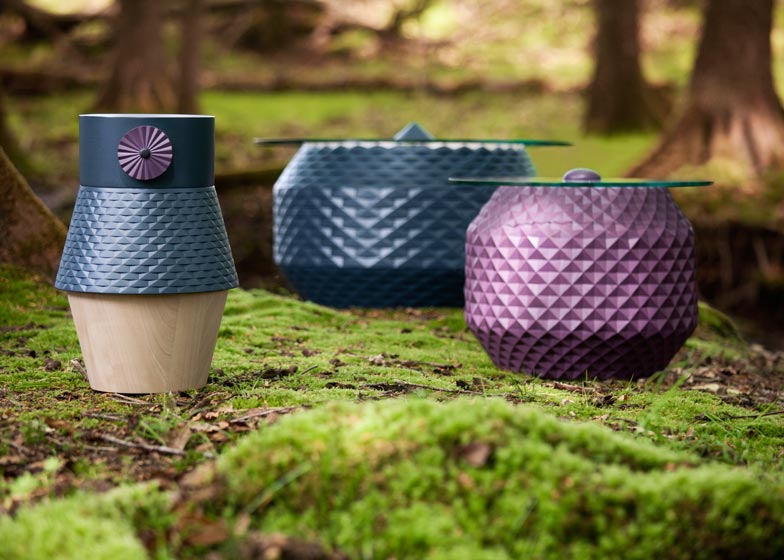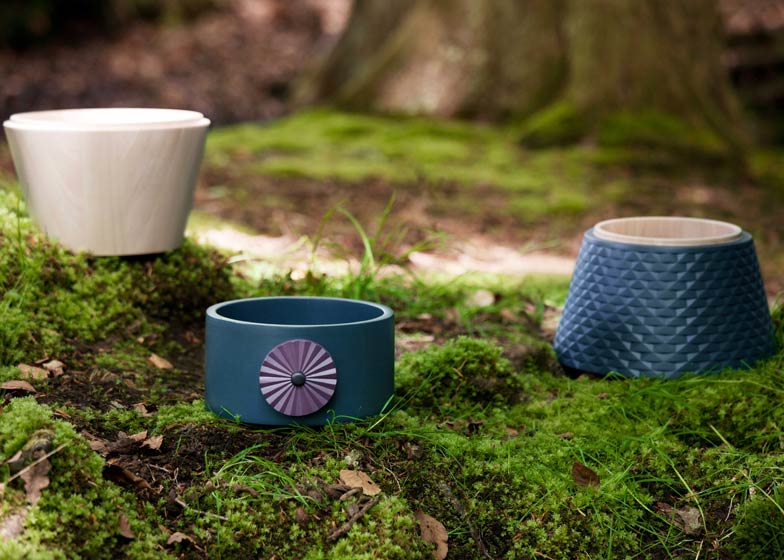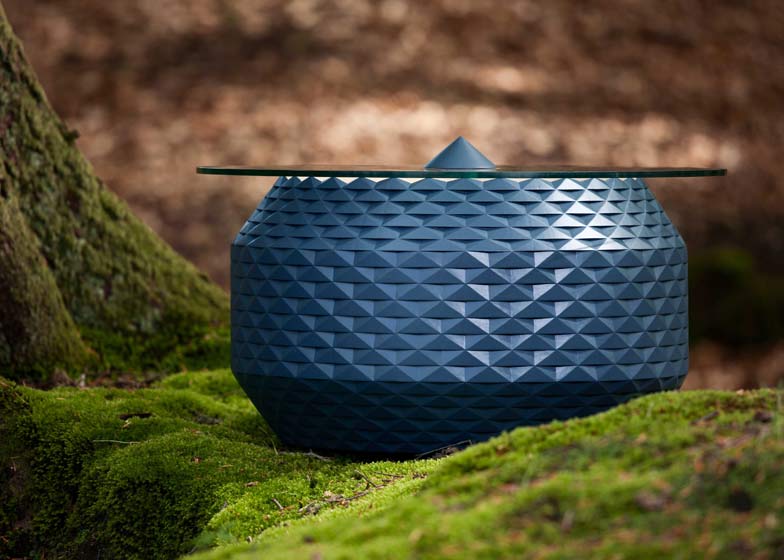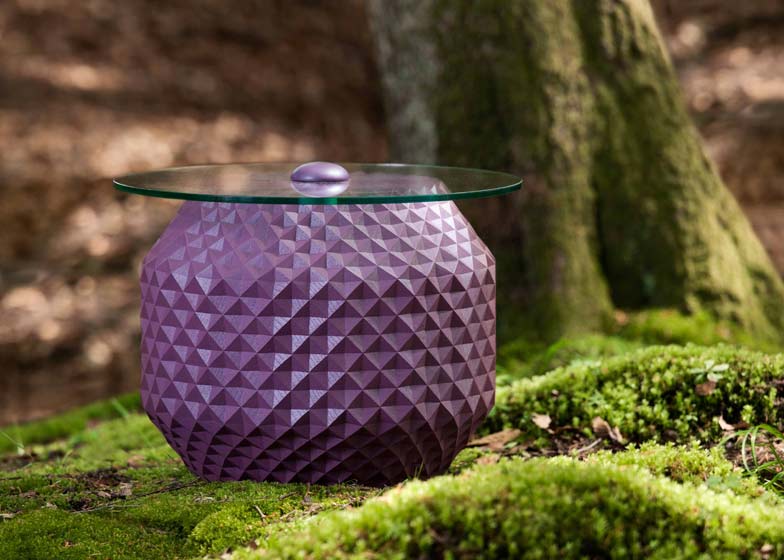Swedish designers Glimpt worked with Peruvian artisans to produce the hand-carved wooden bases for these coffee tables (+ slideshow).
Mattias Rask and Tor Palm of Glimpt travelled to the village of Yungay in Peru to research the techniques used by woodworkers at a workshop run by voluntary organisation, Artesanos Don Bosco.
They designed a range of contemporary tables that make use of the facilities provided to artisans, who are taught furniture-making skills to encourage them to stay and work locally, rather than moving to the cities.
The bases are made from local timber, including a hard white wood called Lengha, and a type of cedar. The wood is turned on a lathe before the faceted decoration is chiselled by hand and painted.
Explaining how the project came about, Rask told Dezeen: "We sent an email to a Swedish guy in Lima and asked him about crafts organisations in Peru; he basically said that Artesanos Don Bosco are the best artisans in Peru, so we sent them an email!"
Prehistoric Aliens will continue to be produced in Yungay and was presented by Italian furniture brand Cappellini as part of its Cappellini NEXT collection in Milan earlier this year.
Glimpt collaborates with artisans around the world and previously created a range of stools made from seagrass in Vietnam, and ceramic lights painted to look like strawberries produced by craftsmen in South Africa.
See all design by Glimpt »
See all furniture »
Still life photography is by Daniel Thrue.
Here's some more information from the designers:
Glimpt of Peru - Prehistoric Aliens
We spent the autumn of 2012 in Peru working and learning from the Crafts Cooperative, Artesanos Don Bosco, a continuation of our work with craftsmen and women from different countries.
Before our trip we had not fully appreciated how extensive this organisation was. Artesanos Don Bosco is part of a large Italian voluntary organisation called Operazione Mato Grosso. This organisation was founded in the 1960s by Father Hugo, a Catholic missionary priest who saw there was a need to help poor farmers in the Andes. Now, some fifty years later, Operazione Mato Grosso has roughly 2000 Italian volunteers and employs about twice as many Peruvians.
The work involves educating and training people in the remote villages in the Andes, and then creating employment opportunities for them there. The idea is to encourage people to stay and work in these isolated areas rather than move to a very uncertain future in Lima, something that many Peruvians otherwise are tempted to do.
Operazione Mato Grosso promotes the virtues of a simple, unhurried life, living and working in cooperation with one another. They have started schools, orphanages, hospitals and even power stations that provide electric power in the mountains. All this is free of charge for the poor.
One part of this organisation, called Artesanos Don Bosco, provides craftsmanship training. After five years training with ADB most of the artisans then work in the organisation’s cooperative. The courses they give are mainly related to different ways of working with wood. This includes furniture making, decorations, carving pictures and the construction of housing. They also teach stone masonry, how to make glass, different ways of working with textiles and even metal work.
We decided we wanted to help them develop a more modern series of furniture. After having visited several villages and different cooperatives in the Andes we finally settled on Yungay as the village where we would set to work. In Yungay there was a little cooperative that worked with furniture making. During our visits we were impressed by their very high standards of craftsmanship and above all by the skill of the people who carved pictures in wood.
So day after day of soup followed by fried guinea-pigs and washed down with Inca Cola finally lead to the production of a series of coffee tables called Prehistoric Aliens. Our main difficulty was not a shortage of good ideas but rather the language barrier. Neither of us spoke any Spanish but we were faced with a situation where this was the only possible language for communication.
The first few weeks we had been helped by our American friend Nick, but after a while we had to manage by ourselves. After keen language practice on the computer every evening, and getting a lot of hands on experience every day in the workshops, we finally managed to make some Spanish sounding words and were rewarded with the nicknames Gordo and Chato (Chubby and Shorty) by our fellow workers.
Marcial, Barosso, Aristares and Messias taught us alot and we hope we have taught them something as well. It has been a good experience living and working with them. Hopefully our collaboration will provide them with more work so that they can keep on developing their skills and supporting their families, as well as contributing to the great work of Artesanos Don Bosco and Operazione Mato Grosso.
The name, Prehistoric Aliens, was inspired by Peru’s fantastic cultural heritage which often seems very mystical and ancient to our western eyes.
The small coffee tables are almost like small spaceships that have just landed, with their leader, The Robot.




